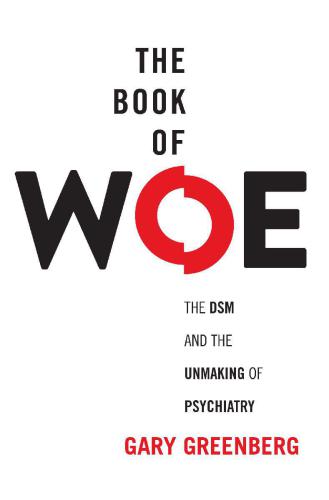
The Book of Woe
The DSM and the Unmaking of Psychiatry
کتاب های مرتبط
- اطلاعات
- نقد و بررسی
- دیدگاه کاربران
نقد و بررسی

Starred review from March 11, 2013
The rewriting of the bible of psychiatry shakes the field to its foundations in this savvy, searching exposé. Greenberg (Manufacturing Depression), a journalist and practicing psychotherapist, follows the American Psychiatric Association’s years-long revision of DSM-5, the latest version of the Diagnostic and Statistical Manual of Mental Disorders, which dictates to the industry everything from diagnoses and research programs to the all-important insurance billing codes. In his telling, it’s a saga of fraught politics masquerading as disinterested medicine, as controversies explode around proposals to add grieving a family member’s death to the roster of mental illnesses, delete Asperger’s syndrome, and concoct vague new maladies—Attenuated Psychosis Symptom Disorder?—that could be used to rationalize treating millions of patients with ravaging drugs. The author digs deeper, questioning whether there is any organic reality underlying the DSM’s confident taxonomy of disorders and suggesting that “psychiatric diagnosis is built on fiction and sold to the public as fact.” Deploying wised-up, droll reportage from the trenches of psychiatric policy-making and caustic profiles of the discipline’s luminaries, Greenberg subjects the practices of the mental health industry—his own included—to a withering critique. The result is a compelling insider’s challenge to psychiatry’s scientific pretensions—and a plea to return it to its humanistic roots. Agent: Jim Rutman, Sterling Lord Literistic.

March 1, 2013
A loose-limbed, skeptically informed critique of the Diagnostic and Statistical Manual, with particular interest in its forthcoming, fifth incarnation. Like it or not, the DSM is a controversial book from almost any approach, and Mother Jones contributor Greenberg (Manufacturing Depression, 2010, etc.) explores them all in this rangy commentary. The DSM has been accused of corruption, infected by Big Pharma looking for new targets and doctors looking for new patients, and its editors have been accused of deception, evasion and secrecy as they garner millions in profit for the American Psychiatric Association. But the authority it has gathered is perhaps most damning: descriptive agreement between practitioners masquerading as medical science, its diagnoses putting critical educational and insurance benefits on the block, a realized potential for overmedicating what may well be normal behavioral responses. A practicing psychotherapist, Greenberg is not about to throw the baby out with the bath water, to deride the urge to recognize and classify our psychological travails, but he does take exception when those categories claim more than they can deliver and our prejudices lead to wild surmises mostly out of touch with the landscape of suffering's natural boundaries. Greenberg is an entertaining guide through the treacheries and valuable instances of the DSM, interviewing members on both sides of the divide and keeping the proceedings conversational even when discussing the manual's pretensions toward epistemic iteration. He also brings his own practice into the picture, with examples of the DSM falling woefully short in capturing the complexity of personality. Bright, humorous and seriously thoroughgoing, Greenberg takes all the DSMs for a spin as revealing as the emperor's new clothes.
COPYRIGHT(2013) Kirkus Reviews, ALL RIGHTS RESERVED.

May 1, 2013
With the forthcoming fifth edition of the American Psychiatric Association's Diagnostic and Statistical Manual of Mental Disorders (DSM-5), psychotherapist Greenberg (The Noble Lie) releases a timely critique of the process for the manual's rewriting. Drawing mainly on personal correspondence with key players working on the revision, he passionately argues that decisions regarding which categories of "illness" and their criteria for diagnosis are changed, dropped from, or added to the manual are not based on sound scientific research. Thus, he argues the primary purpose of the DSM-5 is to provide an economic foundation for the psychiatric profession as well as for pharmaceutical and health-insurance companies. He emphasizes proposed changes in the discussions of Asperger's syndrome, bereavement-related depression, bipolar disorder in children, and personality disorders. VERDICT Greenberg's documentation of the DSM-5 revision process is an essential read for practicing and in-training psychotherapists and psychiatrists and is an important contribution to the history of psychiatry. Those more casually interested in the topic, however, may be satisfied with his Wired article "Inside the Battle to Define Mental Illness," which inspired the book.--Katherine G. Akers, Emory Univ. Libs.
Copyright 2013 Library Journal, LLC Used with permission.

























دیدگاه کاربران